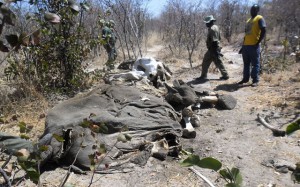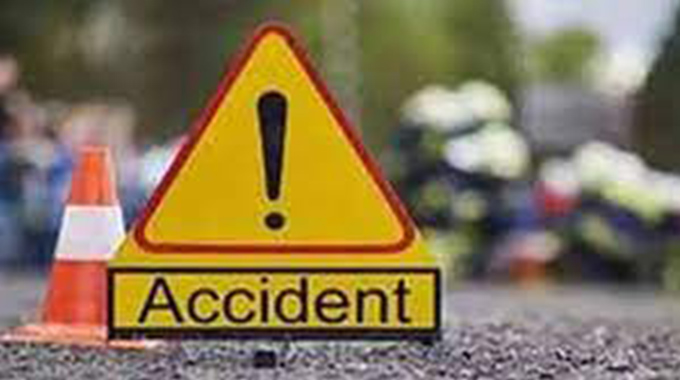Chiefs call for thorough probe into Hwange poaching

 Prosper Ndlovu Senior Reporter
Prosper Ndlovu Senior Reporter
CHIEFS from Hwange District yesterday said the killing of 90 elephants at Hwange National Park should be investigated thoroughly and pledged to work closely with the Government to get to the bottom of the problem.In separate interviews, the chiefs said the cyanide poisoning incident, which has also killed several other wildlife species, should also involve them as custodians of the natural resources in their areas.
Chief Dingani said traditional leaders were ready to work closely with the police and parks officials to bring all the culprits to book.
“We are not happy with the merciless killing of elephants, especially the manner in which they are killed. It would be better if they shot them than using poison.
“Poisoning is very dangerous as it might end up affecting even people and I urge everyone in the community to report any suspicious looking person who might be linked to poaching,” said Chief Dingani.
“The problem is that most people are afraid to make a report to the police because they would be regarded as suspects. The police should stop that. People should use suggestion boxes as well. There is no need for us to keep quiet.”
Chief Dingani’s sentiments were echoed by Chief Nekatambe who said: “The park lies within our territory and we are not happy with the poisoning incident. Yisihluku lesiyana (that is cruelty). Surprisingly people from the Parks and Wildlife Management Authority have not bothered to tell us as chiefs what is happening,” said Chief Nekatambe.
“We are just hearing that Government officials are frequenting the park to discuss the poisoning incident but we have not been consulted.
“We are eager to work with the Government in addressing this issue but we are left out. I have been to Harare and other chiefs were asking me about the issue and I told them that we did not know anything.”
Chief Shana said traditional leaders have a role to play in the fight against poaching but said chiefs in the area did not have much information about what was happening in the park.
“We do not know what is going on because we have not been given full details regarding the issue. Some are saying the cyanide poisoning happened in Tsholotsho,” said Chief Shana.
“We need to discuss such serious issues at our meetings as chiefs because umumo wakhona awusiphathi kuhle. We have been staying with these wild animals for a long time and people should not kill them like that.
“These poachers are a danger to the community and their behaviour shows that they can even poison our livestock. We need to deal with this as soon as possible.”
Chief Shana said there was a need for chiefs and their village heads to meet regularly and discuss ways of protecting wildlife species in their area.
Parks and Wildlife Management Authority public relations manager Ms Caroline Washaya Moyo could not be reached for comment on the chiefs’ concerns.
On Sunday, an eight member inter-ministerial delegation visited the park to assess progress in the de-toxication of the affected areas.
They resolved to tighten security at the park and indicated that the Government might consider deploying soldiers to beef up security.
The Minister of Environment, Water and Climate, Cde Saviour Kasukuwere, led the delegation, which comprised his Cabinet colleagues, Dr Sydney Sekeramayi (Defence), Dr Ignatius Chombo (Local Government), Professor Jonathan Moyo (Information), Dr David Parirenyatwa (Health), Dr Joseph Made (Agriculture) and Cde Walter Chidhakwa (Mines).
To date the cyanide poisoning incident has killed 90 elephants, two buffaloes, a kudu, giraffe, lion, two painted dogs and lots of vultures that consumed the carcasses of the poisoned animals.









Comments